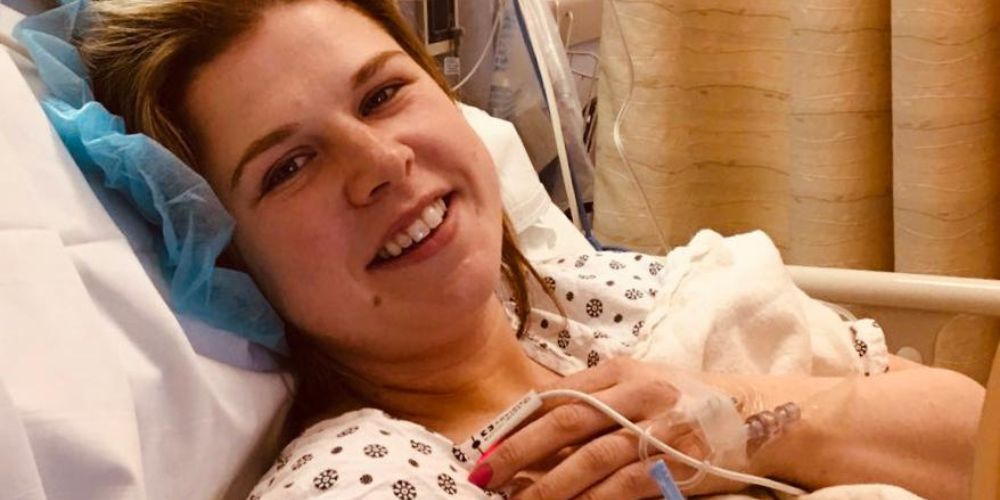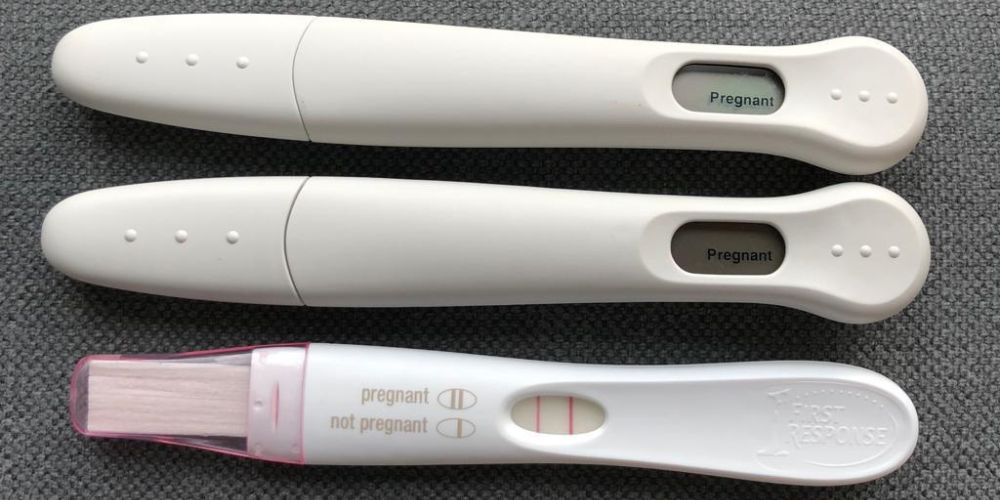
Causes & Treatment
Q&A – Eloise, Founder of TRB, Tells Her Story
Eloise Edington, CEO and Founder | 9 Mar 2021
I am the founder of The Ribbon Box and a mother to three kids, thanks to sperm donor conception. My husband has Klinefelter Syndrome, which means he has azoospermia (no sperm), therefore making him infertile.
From this early age, we’re making sure to share with our children everything about their conception – in an age appropriate way.
Recently, I carried out a Q&A on our Instagram account and it was hugely popular, so I thought it would be worth sharing as a fertility blog. Below are the questions from readers, with my personal responses.
For those of you who would love some fertility help and advice for your own TTC journey, this may be useful, especially for anyone looking at egg or sperm donor conception.
The medical side and decision-making process
Q: My husband is also infertile, so we plan to use donor sperm. Is there a certain sperm bank you recommend?
Cryos International are very good. They have a wide range of sperm donors and a very user-friendly website.
Q: What did you look for in a donor?
For us it was ‘matching’ my husband the best we could. So his physical features, but also his characteristics, such as a dry sense of humour. We also looked at education results and family medical history, as well as whether we felt a connection with the description each donor gave of themselves in their audio recording.
Q: Did you have two embryos transferred, resulting in twins? I’m trying to decide if I should.
Yes, for our second child we had two blastocysts put back at Day 5 (fresh). One looked stronger than the others, but both blastocysts worked and resulted in our boy/girl twins, who both grew to a good birth weight and were delivered by planned C-section at 37 weeks (which is a good gestational period for twins). We had a choice as to how many were put back, but this was five years ago.
Q: What was the most difficult part about using donor sperm?
I’d probably say that the complexities don’t disappear after birth (like they might with standard IVF). There are always going to be hurdles, but take them as they come! For example, I’ve started wondering how many half-siblings our children may have.
Q: Were you able to use the same donor for both pregnancies?
I get asked this a lot. Yes, all three of our children are via the same sperm donor. It wasn’t cheap, but we bought enough sperm for multiple cycles, not knowing how many tries it would take, especially for a sibling. I do remember it being hard to make a decision as to how much we could afford to spend to ensure that we would have enough sperm for a sibling.
Q: Did you do genetic testing on the embryos? And was your first via a frozen embryo?
No we didn’t because I was 31 at my first egg retrieval, then 32 at the second. Yes, our first child was via a frozen embryo.
Q: Were you ever checked out to see if there was anything wrong?
I had a standard fertility MOT (AMH test / uterus scan), at the same time as my husband was diagnosed with azoospermia (lack of sperm). We had been trying to conceive naturally for six months and nothing had happened, so I put the pressure on for us to have fertility tests. We knew nothing about our fertile health, which felt scary. I had a feeling something was wrong, and I was right, although I had presumed that the problem lay with me.
Q: How did you make the decision between a known or unknown sperm donor?
It’s very much personal preference. For us, we knew from the beginning that we wanted to tell our children. So, we felt that, as we would be telling them, we’d like them to be able to decide if they’d like to meet the donor when they were 18. We personally wanted them to have that choice. It also depends which country you’re having treatment in, as there are different laws around donor anonymity from country to country. Sperm banks can help with more information on this.
Q: Is your sperm donor someone you know? If not, was it easier to choose a stranger?
He is not someone we know. He is American and we are British. We thought about asking a relative but decided for us, that it could get too complicated.

My husband’s feelings
Q: How did you and your husband feel about using a stranger’s sperm?
Good question. Mixed emotions during the IVF process, but he always wanted to be a father ,so it was the right option for us. Ups and downs during pregnancy, but finding out the sexes in both pregnancies helped him bond before they were here. They are obsessed with him and he couldn’t love them more. We both agreed from the beginning to use an ‘open’ sperm donor, but again that is a personal choice.
Q: How has your husband been with everything throughout your journey? Connection etc.
He’s been amazing. As I said above, ups and downs we had to work through, but we’re taking each step at a time and the story is becoming our children’s story. We use some great donor conception books to help explain (in basic terms!)
Q: We also have azoospermia. How did your husband get convinced on sperm donation?
We weren’t left with many options and I really wanted to try and have a pregnancy and baby, so we decided this route would feel right for us, rather than adoption. It’s worth seeing a fertility counsellor or fertility coach as it is a complex decision. Message us if you want suggestions.
Q: We actually just found out my husband has zero sperm. How did you get through that?
I’m so sorry, it’s really b***dy tough. All a bit of a blur now, but it did really help having a plan and a next fertility specialist appointment lined up to discuss options. Also, speaking to people who had donor conceived children massively helped! I only knew one relative who had used an egg donor at the time of this, but I became reassured by her that the donor conception made no difference to how much she, her husband and the whole family loved the children.
Q: How does your husband cope with having Klinefelter Syndrome? Mine struggles with ‘not feeling manly’
It’s the long-term effects that no one really talks about too, besides infertility – the lowered testosterone can mean he is more prone to serious illnesses and issues. He has to have testosterone replacement therapy (TRT) for life (following his diagnosis and invasive surgery) and this has unpleasant side effects too. He contributed to an article for TRB about this, which you can read here.
Related Article – Male Infertility: ExSeed Health’s Mission to Empower Men
Telling friends
Q: When did you tell friends about using a donor? I’m not ready to yet!
It kind of gradually became more ‘normal’ to us, as time went on. Then of course, when I founded The Ribbon Box, I didn’t know who knew and who didn’t out of our friends. I have been public about our story to support others.
Q: Did anyone react differently to how you expected them to, and did anyone judge?
Some people were great, others didn’t know what to say and clearly felt uncomfortable when I talked about it. Some even talked behind my back about our openness! You learn who your people are.
Related Article – Male (In)fertility: Six Recommendations When Trying to Conceive

Telling your children
Q: Will you tell your kids how they were brought to life or keep it to yourselves?
We’ve already started telling them and, through the work I’m doing with TRB, they’ve met our wonderful fertility specialist on Zoom! It helps because we weave her name into the story. They understand that Daddy was missing important pieces to make them, and we use the words ‘sperm donor’.
Q: I’m a mom of a three-year-old with sperm donation (with my wife). How do you start those conversations?
Rather than deciding on a ‘big day’, try starting to talk about it gradually. We’ve found that small chats here and there help (especially with the book prompts). You’ll be talking about it, and then they will suddenly change the subject and ask what’s for lunch! This all helps to normalise it.
Q: Is there anything in the future that makes you nervous still or do you now find it less daunting?
Not really nervous about the future, because we are taking each day as it comes. I think it probably is less daunting because we are now looking back at the whole process and we know it was the right path to have taken and we couldn’t be happier. There will no doubt be hurdles as they get older. Also, having three means they may have different opinions about what they want to do regarding meeting the donor and/or half siblings.
Related Article – Eight Things I’ve Learnt Whilst Raising a Donor-Conceived Child
Additional advice
Q: I am pregnant with my second via a sperm donor, due to azoospermia too! Any children’s book recommendations?
Some good ones are: @youweremeantformebook, The Pea That Was Me; Daddy Was Mummy’s Tummy Big?
Q: Using donor sperm due to azoospermia and feeling like the pressure is all on me. Any advice?
I did feel like that a bit too and sometimes it felt unfair. I think just try to prepare the way you would, regardless of whether you are using a donor with IVF or IUI, or not.









